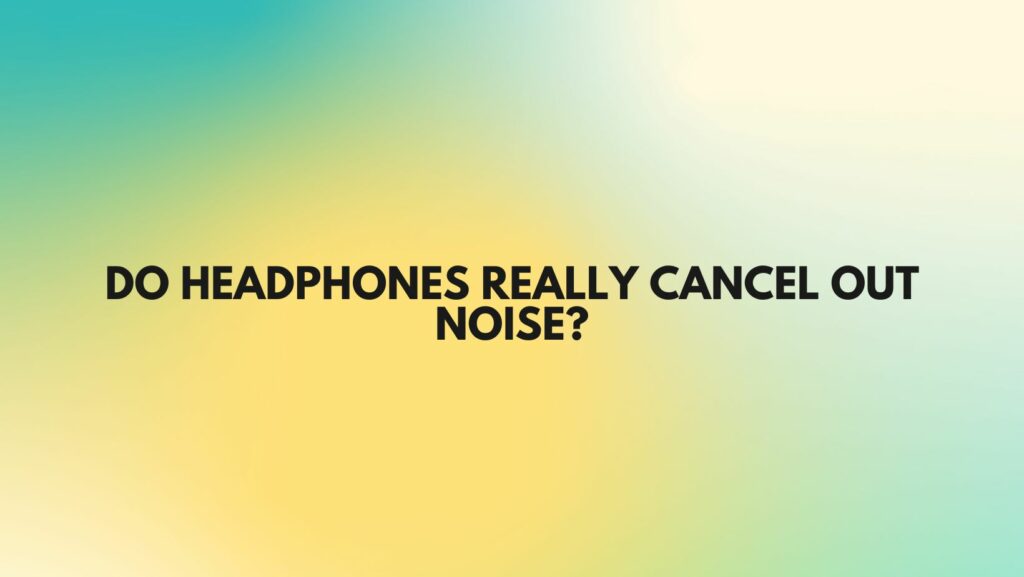Yes, headphones can really cancel out noise, but it is important to understand the limitations of noise cancelling technology. Noise cancelling headphones use microphones to detect ambient noise and then produce anti-noise signals to cancel it out. This is most effective at canceling out continuous, low-frequency noises, such as the rumble of an airplane engine or the hum of a washing machine.
Noise cancelling headphones are not perfect, and they cannot cancel out all noise. This is because noise cancelling systems are limited by the physics of sound. For example, high-frequency noises are more difficult to cancel out than low-frequency noises. Additionally, noise cancelling systems can be fooled by sudden or unexpected noises, and reflected noise.
Despite these limitations, noise cancelling headphones can still provide significant noise reduction. For example, noise cancelling headphones can reduce the noise level of airplanes and trains by up to 30 dB. This can make a big difference in terms of comfort and productivity.
Here are some of the benefits of using noise cancelling headphones:
- Reduced noise exposure: Noise cancelling headphones can help to protect your hearing by reducing your exposure to loud noises.
- Improved concentration: Noise cancelling headphones can help you to focus better by blocking out distractions.
- Increased comfort: Noise cancelling headphones can make travel, commuting, and working in noisy environments more comfortable.
- Better sleep: Noise cancelling headphones can help you to sleep better by blocking out noise from outside your bedroom.
If you are looking for a way to reduce noise exposure, improve concentration, or simply make your life more comfortable, then noise cancelling headphones are a great option.
Choosing the right noise cancelling headphones
There are a number of different factors to consider when choosing noise cancelling headphones, such as:
- Type: There are three main types of noise cancelling headphones: over-ear, on-ear, and in-ear. Over-ear headphones tend to provide the best noise cancellation, but they can be bulky and uncomfortable to wear for long periods of time. On-ear headphones are more comfortable than over-ear headphones, but they do not provide as good noise cancellation. In-ear headphones are the most portable type of noise cancelling headphones, but they also provide the least noise cancellation.
- ANC technology: Not all noise cancelling headphones use the same ANC technology. Some ANC systems are more effective than others. When choosing noise cancelling headphones, it is important to research the ANC technology used in each model to find the best possible noise cancellation.
- Features: Noise cancelling headphones come with a variety of different features, such as Bluetooth connectivity, built-in microphones, and touch controls. When choosing noise cancelling headphones, consider which features are important to you.
- Price: Noise cancelling headphones can range in price from around $50 to $300. When choosing noise cancelling headphones, it is important to set a budget and find a model that fits your needs and price range.
Conclusion
Noise cancelling headphones can provide significant noise reduction and offer a number of benefits, such as reduced noise exposure, improved concentration, increased comfort, and better sleep. When choosing noise cancelling headphones, it is important to consider the type of headphones, ANC technology, features, and price.


